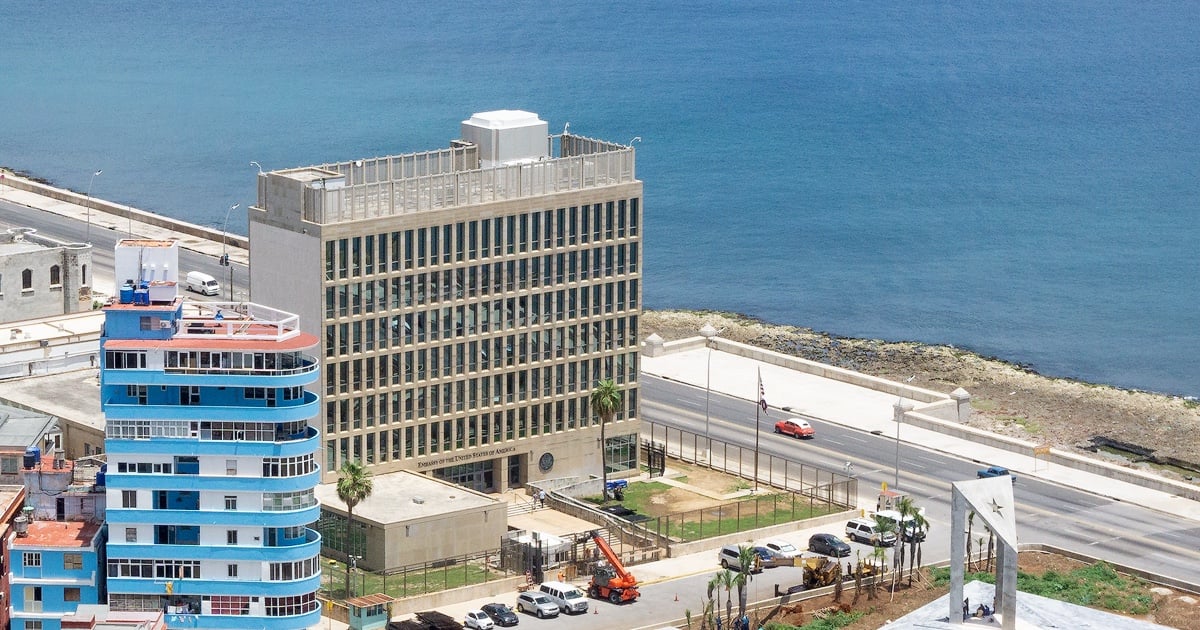
The U.S. Embassy in Havana has generated discussion by thanking a comment in favor of ending the embargo on Cuba on its Facebook wall.
The controversy has erupted in the comments regarding a news article about the meeting between the new mission chief, Mike Hammer, and the Czech ambassador in Havana, Petr Kaván, where they discussed "shared values and reinforced their joint commitments to the promotion and defense of human rights in Cuba."
In the photo of both individuals, the internet user Carlos Alberto Suárez Leyva, who has only 13 friends and a restricted profile on Facebook, but has been sharing, since January 2024, mainly news related to Kamala Harris, Biden, Michelle Obama, the Democratic Party, and its associated artists on the social network X (formerly Twitter), wrote in the post from the Embassy: "Brotherhood among peoples is what we need, not hatred, embargoes, blockades, or sanctions. Cuba is open to all. Let us live and share as much as possible for the common good."
The United States Embassy merely expressed gratitude for this reflection, but its response was criticized by those who wonder whether "Cuba's agro-industrial development, livestock, and agriculture are being blocked by the United States?"
"Why instead of building so many empty hotels, didn’t they invest in clean and renewable energy, since we have an abundance of sun and land? Ever since I was born, I've been hearing about this damn blockade. Cuba, what kind of life have you given me?" commented a Facebook user identifying himself as Ramón Rodríguez.
There were many more comments in this regard, but there were also criticisms of the Embassy's response, which was not viewed as a simple polite reply, but rather as a final gasp of the Biden Administration's policy of outreach towards the regime in Havana.
This is how Mar Leyva saw it: "United States Embassy in Cuba, thank you for a communist reflection. That and human rights cannot go hand in hand. Get your act together," the internet user demanded.
The United States Embassy in Cuba announced last week the arrival of Mike Hammer as the new Mission Chief, succeeding his predecessor Benjamin G. Ziff. The new head of the U.S. diplomatic mission in Cuba comes from the Horn of Africa, a region marked by instability, particularly due to insurgents in Somalia, and ongoing migratory flows from Eritrea.
However, despite the change in the head of the Mission, the United States Embassy in Havana remains under the control of the Biden administration, the same one that, in 2024, extended the embargo on Cuba for another year, which has been renewed by thirteen administrations to date.
The embargo is the most commonly used excuse by the Cuban regime to cover up its ineffectiveness, internal blockade, and failed economic strategies such as the Tarea Ordenamiento, which the Communist Party began implementing in 2021 and had to suspend in 2023 after a disastrous failure that has left 89% of Cuban families in extreme poverty.
Filed under: